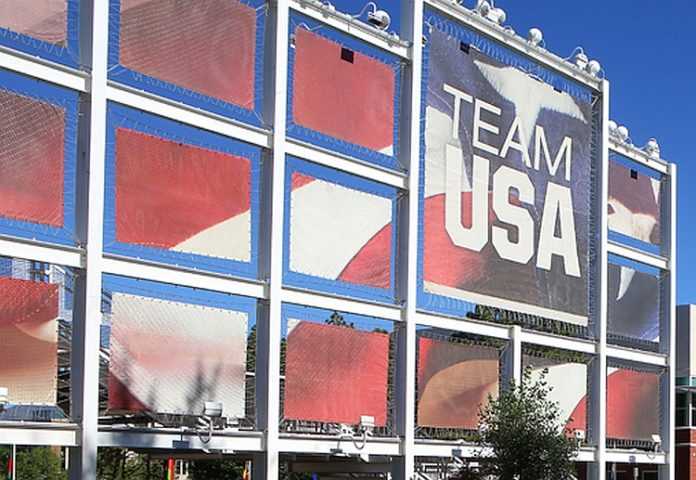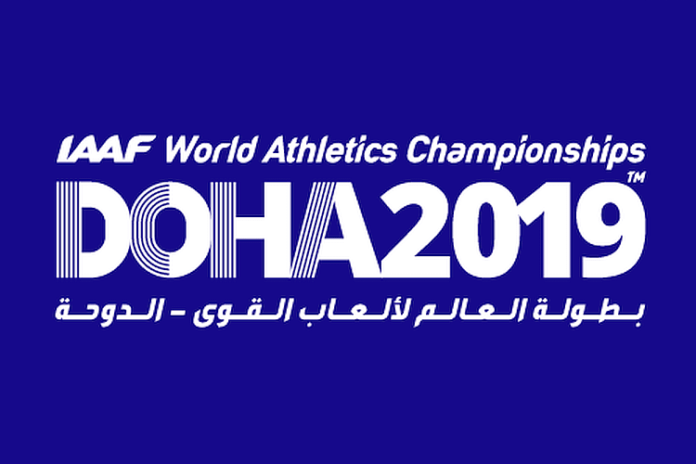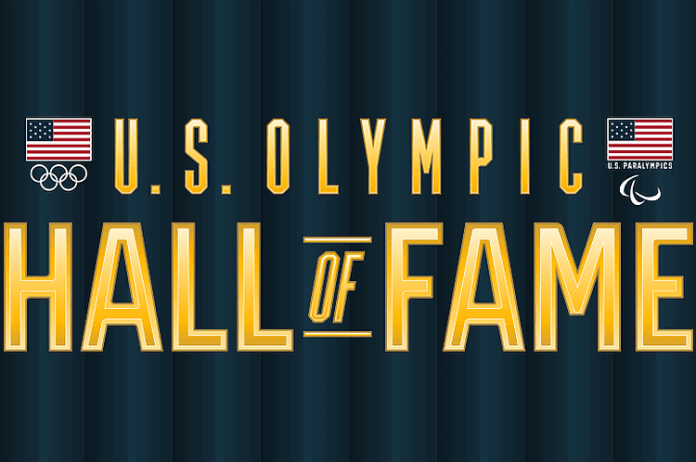
Remember the awards ceremony protests during the Pan American Games in Lima, Peru last month by American gold medalists Race Imboden in fencing and Gwen Berry in track & field?
Imboden went to one knee during the playing of “The Star Spangled Banner” as a member of the winning Team Foil squad and Berry raised her fist during the anthem during the medal presentation ceremony for the women’s hammer throw.
These actions did not go unnoticed and USOPC spokesman Mark Jones released a statement shortly afterwards, noting in the case of Imboden:
“Every athlete competing at the 2019 Pan American Games commits to terms of eligibility, including to refrain from demonstrations that are political in nature. In this case, Race didn’t adhere to the commitment he made to the organizing committee and the USOPC. We respect his rights to express his viewpoints, but we are disappointed that he chose not to honor his commitment.”
A similar note was circulated concerning Berry.
A week later, USOPC chief executive Sarah Hirshland sent a letter to both, which included:
“This letter will serve as a formal reprimand from the United States Olympic & Paralympic Committee. Additionally, the USOPC considers you to be in a probationary period for the next 12 months. This means you could face more serious sanctions for any additional breach of our code of conduct than might otherwise be levied for an athlete in good standing.”
Hirshland’s letter indicated that the USOPC would be discussing the issue of protests and punishments with the International Olympic Committee, which has the authority to ban athletes from participating in the Games for, among other things, political protests.
It’s going to be a more interesting discussion now.
In case you missed it, the USOPC announced its first class of inductees in seven years for the U.S. Olympic and Paralympic Hall of Fame on Monday (23rd), naming five Olympians, three Paralympians, one team and four others: a coach, contributor and two “legends.”
The legends were 1968 Olympic 200 m gold medalist Tommie Smith and bronze medalist John Carlos. They famously each raised a gloved fist – universally recognized at the time as the “Black Power Salute” – during the playing of the anthem during the awards ceremony in Mexico City (MEX).
They were promptly banished from the Games and sent home.
Now they will be inducted as members of the USOPC Hall of Fame in November. The selection was not part of the public vote – done for the Olympians, Paralympians and team – but the U.S. Olympic & Paralympic Hall of Fame nominating committee.
The members of this group are not listed anywhere on the USOPC Web site, but it is made of individuals who “represent the following areas of the U.S. Olympic and Paralympic movements: U.S. Olympians and Paralympians Association, Athletes’ Advisory Council, Paralympic sport, media, USOC Board of Directors, USOC executive and one at-large committee member.”
So as a person representing “USOC executive” had a vote in this, Hirshland was at least indirectly present in the decision-making process.
And by this action, Hirshland and the USOPC now cannot possibly contemplate sanctions against U.S. athletes who publicly protest just about anything during next summer’s Olympic Games in Tokyo.
Let’s be clear: Smith and Carlos are being honored for their protests during the Mexico City Games; the USOPC biography of both in the Hall of Fame announcement starkly describes each as individuals who “courageously stood up for racial equality during the civil rights movement.”
Their protests were deeply political and aimed at audiences in the U.S. and were noticed because of the wide interest in the Olympic Games vs. limited interest (and television exposure) of track & field.
If the USOPC even thinks of sanctioning an athlete for some form of protest in 2020, the answer back will be, “You put Smith and Carlos into the Hall of Fame for doing the same thing.”
What will the USOPC’s response be to that?
And the IOC?
Most especially under current President Thomas Bach, the IOC has declared itself as an organization which places “sport at the service of the harmonious development of humankind, with a view to promoting a peaceful society concerned with the preservation of human dignity.” How does a T-shirt worn during fencing warm-ups by Imboden reading “Impeach Trump” or one worn by football star Megan Rapinoe that says “Pay Me Now” suit the IOC?
How can the USOPC ask its athletes to sign the pledge against political “demonstrations” in view of honoring Smith and Carlos as members of its Hall of Fame? Hirshland described the new class of inductees as “champions who have transcended sport through the legacy they leave both on and off the field of play. … We thank them for their impact on sport and society, and for continuing to inspire the next generation of athletes and fans.”
Of course, there are people who may be offended that Smith and Carlos are receiving this honor. First in line should be Vince Matthews, now 71, and the family of the late Wayne Collett – who passed in 2010 – the gold and silver medalists in the 1972 Olympic 400 meters and stood casually on the victory stand in Munich (GER) during the playing of the U.S. anthem. Said Collett at the time, “I couldn’t stand there and sing the words because I don’t believe they’re true. I wish they were. I believe we have the potential to have a beautiful country, but I don’t think we do.”
Surely they must be inducted also, yes, and as soon as possible?
The Hall of Fame nominating committee has created an untenable position for Hirshland and the USOPC and seriously undercuts the integrity of the organization’s “probation” imposed on Imboden and Berry.
Hirshland, USOPC Board chair Susanne Lyons and the U.S. IOC members Anita DeFrantz and Kikkan Randall will indeed have to have a serious discussion with Bach and others in Lausanne, and soon. With the Tokyo Games taking place in a U.S. election year and between the Democratic and Republican conventions, it will be prime time for political demonstrations for American athletes.
And if the U.S. athletes are doing it, you may rest assured that the floodgates will be opened for similar actions by others in countries where free speech is allowed … and thanks to television, will cause problems for those watching in countries where speech is repressed.
Maybe someday we’ll find out who the members are of the little committee that caused such a big uproar.
Rich Perelman
Editor
If you enjoyed this commentary, sign up to receive the TSX Daily by e-mail, five days a week by clicking here. You can also refer a friend by clicking here.

























